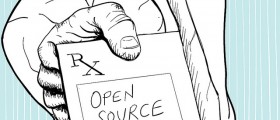
What is Dilantin and what does it treat?
Several types of epileptic seizures can be treated with the medication called Dilantin. Most commonly it is prescribed and used in cases of generalized tonic-clonic seizures, complex partial seizures and seizures that occur during the surgery performed on the brain. The primary goal of this medication is to affect the sodium channels in the brain, which will disable abnormal activity to spread from one part of the brain to others, which, as a result, keeps the seizures under control. However, in order for this medication to be as effective as possible, it is necessary to take it always at the same time and always in the same way, which means with or without food. People who begin to use it are not advised to stop using it without prior consultations with the doctor, because if they stop taking it or if they start skipping or lowering the dosage, it will not work.
How safe is it?
Having in mind the mechanism of action of this medication, it is obvious that it should be used exactly as prescribed. Aside from this, the doctors need to be informed about every other condition that might be present even if it does not seem to be important to the patient. The same goes for all other medications that the patient might be using already, and this includes even supplements and vitamins. All of this is necessary in order to determine the right dosage and in order to prevent possible interactions or unwanted effects of this medication. And a number of them can really be serious. What people might experience as negative effects of Dilantin are unusual movements of the eye, problems with muscle coordination and confusion. Their speech might be slurred, and they might experience headache, insomnia and various gastrointestinal problems.
Side effects that need to be reported to the doctor as soon as they are noticed are movements of the body or face that cannot be controlled, behavior or thinking that is not usual or typical of that person, bruising or bleeding without any logical explanation, and aggravation of seizures. Men might experience bending of the penis, which is particularly discomforting and which will have a negative effect on the intercourse. Even though it happens rarely, some patients have suicidal thoughts while on this medication, but this is something that should be reported to the doctor before it is too late.

















Your thoughts on this
Loading...